MURDER ON NOB HILL
MURDER ON NOB HILL

SHIRLEY TALLMAN
 St. Martins Minotaur
St. Martins Minotaur  New York
New York
MURDER ON NOB HILL . Copyright 2004 by Shirley Tallman. All rights reserved. Printed in the United States of America. No part of this book may be used or reproduced in any manner whatsoever without written permission except in the case of brief quotations embodied in critical articles or reviews. For information, address St. Martin's Press, 175 Fifth Avenue, New York, N.Y. 10010.
www.minotaurbooks.com
Library of Congress Cataloging-in-Publication Data
Tallman, Shirley.
Murder on Nob Hill / Shirley Tallman.1st ed.
p. cm
ISBN 0-312-32855-9
EAN 978-0312-32855-9
1. Women lawyersFiction. 2. Serial murdersFiction. 3. San Francisco (Calif.)Fiction. 4. Chinatown (San Francisco, Calif.)Fiction. I. Title.
PS3620.A54M87 2004
813.6dc22
2003070099
First Edition: June 2004
10 9 8 7 6 5 4 3 2 1
To Bob,
for proving that it's possible to be married to a writer
and keep your sanityat least most of the time.
To Nancy Hersage and JoAnn Wendt.
Your love and faith are appreciated more than I can say.
And to HP,
for always being there for me, no matter what!

Contents
Many thanks to the California State Bar Association for helping me locate and sift through mountains of legal documents, an especially daunting job considering the data that was lost in San Francisco's 1906 earthquake and fire.
Thanks also to the California Historical Society for maintaining a wonderful Web site, and for the personal assistance I received from members eager to help Sarah live comfortably (and accurately) in 1880 San Francisco.
My gratitude also to the Chinese Culture Center of San Francisco, and the generous people who helped guide me through the exotic marvels of pre-earthquake Chinatown.
Last but not least, very special thanks to the Women's Legal History Biography Project, run by Barbara Allen Babcock at Stanford University. You dont know me personally, Barbara, but your project and Web site helped me immeasurably in my research for this novel.
D espite claims to the contrarysome, I fear, voiced by members of my own familyI pride myself on being an honest woman. As a matter of principle, I hold dissimulation of any kind in contempt. That said, I probably should add that I also subscribe to the old adage God helps those who help themselves, even if this sometimes entails being economical with the truth.
If this last statement seems contradictory, I apologize. What Im trying to explain is how I found myself poised on the brink of the most extraordinary adventure of my, to date, twenty-seven years. Despite being essentially an ethical person, you see, I had told a lie. More to the point, I had deliberately misled a group of narrow-minded men into assuming something I knew to be untrue. Furthermore, I do not regret my actions. Faced with the same circumstances, I would not hesitate to resort to this ruse again.
In this year of our Lord 1880, those individuals who continue to hold that females should be denied educational opportunities
beyond those required to secure a good marriage will undoubtedly blame my dear father for my unwomanly moral turpitude (their words, not mine). While I take full responsibility for my actions, I have to admit that this criticism is not without a grain of truth. Were it not for Papathe Honorable Horace T. Woolson, Superior Court Judge for the County of San FranciscoI doubt I would have been standing on the corner of Clay and Kearny Streets, staring up at the law offices occupied by Shepard, Shepard, McNaughton and Hall.
The morning fog that had billowed in that morning through San Francisco's Golden Gate had begun to dissipate, taking with it the heavy, moisture-laden air that, even in late summer, can seep through one's clothing. While Im not particularly affected by the cold, I did consider the emergence of the sun to be a good omen. Or perhaps I was looking for any sign, no matter how fanciful, to bolster my resolve. I realize I am considered by manyincluding the before-mentioned members of my familyto be willful and outspoken, unfeminine and certainly foolhardy in my determination to follow my own path in this world. What would these critics say, I thought with some irony, if they could see the unladylike beads of perspiration forming on my brow, or the cowardly pounding of my heart as I studied those unwelcoming windows?
But I was procrastinating, putting off the mission I had worked so long and so hard to achieve. Straightening my dressI had chosen a two-piece pewter-gray suit with as little bustle as I could get away with since the reemergence of the overstuffed derriereI checked the lapel watch pinned to my shirtwaist. Five minutes to the hour. Time to put my plan to the test!
Purposefully I crossed Kearny Street and entered the building. A directory in the lobby revealed that Shepard, Shepard, McNaughton and Hall held offices on the sixth floor, a level that I
speedily, if somewhat jerkily, reached by means of one of Elisha Otis's new hydraulic elevators, or rising rooms as they were popularly called. The office I sought was guarded by a solid oak door upon which the firm's name had been discreetly embossed.
I entered a room furnished with half a dozen desks, behind which sat as many clerks. The one seated nearest the door rose and, adjusting his spectacles, inquired of my business.
My name is Sarah Woolson, I said, with what I hoped was a confident smile. I have an appointment to see Mr. Shepard.
Im tall for a womana full five feet eight inches in my stocking feetand I towered over the clerk, forcing him to look up at me at an angle. I have noticed that this makes some men uneasy.
Miss Woolson? I dont seem to recall He checked an appointment book. Ah, yes, I see we were expecting Mr. Samuel Woolson. He looked at me hopefully. Your husband, perhaps?
Samuel is my brother, I said, forcing another smile. I believe you were expecting S. L. Woolson. That is I.
The clerk's bony brow creased with uncertainty. Oh, dear. Well, ah, yes. Perhaps I had better fetch Mr. Shepard.
Thank you, I said, forbearing to remind him that was what Id requested in the first place. The clerk scurried down a hallway, and as I waited for his return, I took stock of my surroundings.
The room was larger than I had originally thought; the wood paneling, as well as the way the clerks desks were wedged in one upon another, made it appear dim and cramped. Against the back wall were four doors, the top half of each paned with glass. Inside these cubiclesfor they were hardly bigger than large closetssat what I presumed to be legal associates. At that moment one of them looked up and our eyes met. He seemed surprised, then annoyed, as if my chance glance had invaded his privacy. He glowered at me rudely, then with a scowl returned to his papers.
I wont attempt to deceive you. For a moment I forgot my manners and stared openly at the man. He was a remarkable-looking creature: long, clean-shaven, craggy face topped by a thatch of unruly red hair, skin burned to a golden bronze, tie askew beneath a slightly rumpled white shirt. Even seated, he was obviously very tall, and his shoulders were broad, as if he were no stranger to manual labor. I was surprised to find such a man inside an office at all, especially one of such limited dimensions.
As if sensing my eyes upon him, the man looked up at me again, this time with a glare so fierce I was taken aback. With a withering look of my own, I turned away in time to see the clerk returning, followed by a portly gentleman in his sixties, whom I recognized as Joseph Shepard, Sr., founder and senior partner of the firm. He had occasionally visited our home during my childhood, and I had always been fascinated by his thick shock of white hair and by the trumpeting sound he made at the back of his nose whenever he was annoyed, or when someone took exception to his views. It was obvious from the senior partner's distracted stare that he could not as easily place me.
Next page

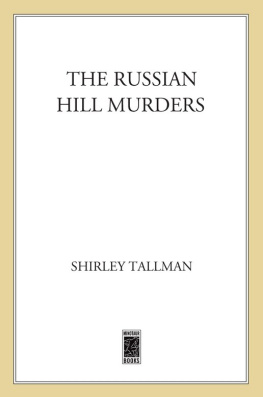
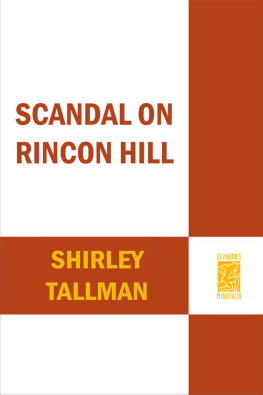
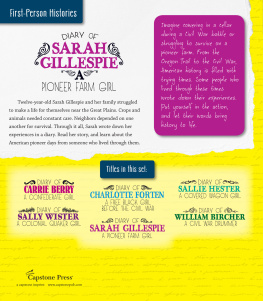
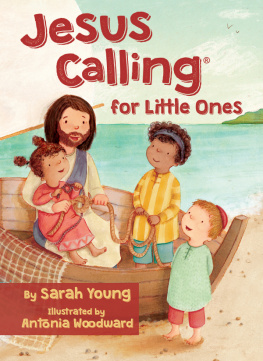
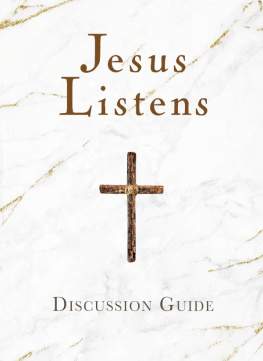

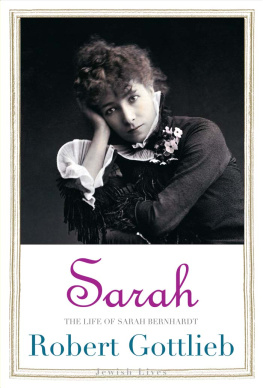

 St. Martins Minotaur
St. Martins Minotaur  New York
New York